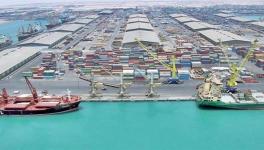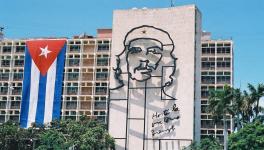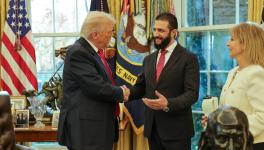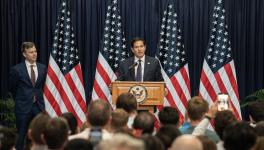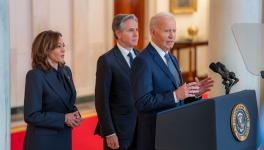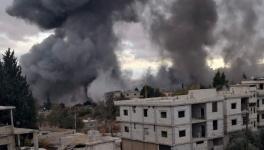Iran's Hard-Line President-Elect Raisi Says he Will not Meet Biden
Dubai: Iran's president-elect said on Monday he would not meet with US President Joe Biden nor negotiate over Tehran's ballistic missile programme and its support of regional militias, sticking to a hard-line position following his landslide victory in last week's election.
Judiciary chief Ebrahim Raisi also described himself as a "defender of human rights" when asked about his involvement in the 1988 mass execution of some 5,000 people. It marked the first time he's been put on the spot on live television over that dark moment in Iranian history at the end of the Iran-Iraq war.
"The US is obliged to lift all oppressive sanctions against Iran," Raisi said at the news conference.
Raisi sat in front of a sea of microphones, most from Iran and countries home to militias supported by Tehran. He looked nervous at the beginning of his comments but slowly became more at ease over the hour-long news conference.
Asked about Iran's ballistic missile program and its support of regional militias, Raisi described the issues as "non-negotiable."
Tehran's fleet of attack aircraft date largely back to before the 1979 Islamic Revolution, forcing Iran to instead invest in missiles as a hedge against its regional Arab neighbours, who have purchased billions of dollars in American military hardware over the years. Those missiles, with a self-imposed range limit of 2,000 kilometers can reach across West Asia and US military bases in the region.
Iran also relies on militias like Yemen's Houthi rebels and Lebanon's militant Hezbollah group for counterbalance against enemies such as Saudi Arabia and Israel, respectively.
On a possible meeting with Biden, Raisi simply answered: "No."
His moderate competitor in the election, Abdolnasser Hemmati, had suggested during campaigning that he'd be potentially willing to meet Biden.
The White House did not immediately respond to Raisi's statements. Raisi will become the first serving Iranian president sanctioned by the US government even before entering office, in part over his time as the head of Iran's internationally criticised judiciary — one of the world's top executioners.
The victory of Raisi, a protégé of Iran's Supreme Leader Ayatollah Ali Khamenei, came amid the lowest turnout in the Islamic Republic's history. Millions of Iranians stayed home in defiance of a vote they saw as tipped in Raisi's favour after a panel under Khamenei disqualified his strongest competition.
In official results, Raisi won 17.9 million votes overall, nearly 62% of the total 28.9 million cast. In Tehran, the election saw a 34% turnout, a number far lower in previous years that saw polling stations noticeably empty.
Raisi's election puts hard-liners firmly in control across the government as negotiations in Vienna continue to try to save a tattered deal meant to limit Iran's nuclear programme, at a time when Tehran is enriching uranium at 60%, its highest levels ever, though still short of weapons-grade levels.
Representatives of the world powers party to the deal returned to their capitals for consultations following the latest round of negotiations on Sunday.
Then-President Donald Trump unilaterally withdraw America from the landmark agreement in 2018, setting in motion months of tensions across the region.
Raisi's election victory has raised concerns that it could complicate a possible return to the nuclear agreement. In his remarks on Monday, Raisi called sanctions relief as "central to our foreign policy" and exhorted the US to “return and implement your commitments” in the deal.
On Sunday, Iran's sole nuclear plant at Bushehr underwent an unexplained emergency shutdown. Previously, Iranian officials had warned US sanctions affected their ability to get parts for the facility.
On Saudi Arabia, which has recently started secret talks with Iran in Baghdad to reduce tensions with Iran, Raisi said that Iran would have “no problem” with a possible reopening of the Saudi Embassy in Tehran and the “restoration of relations faces no barrier.” The embassy was closed in 2016 when relations deteriorated.
Get the latest reports & analysis with people's perspective on Protests, movements & deep analytical videos, discussions of the current affairs in your Telegram app. Subscribe to NewsClick's Telegram channel & get Real-Time updates on stories, as they get published on our website.









